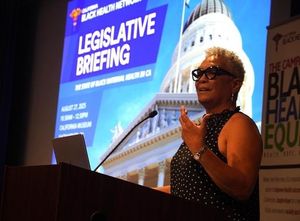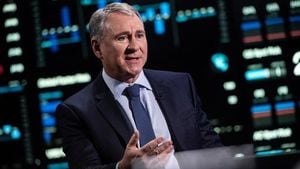Robert F. Kennedy Jr., known for his outspoken views on health issues, has ignited debate with his recent comments on the popular weight-loss medication Ozempic and its impact on weight loss. Kennedy, who is also running for president, described Ozempic as dangerous and unnecessary, calling attention to the potential long-term health risks associated with such medications. Instead, he advocates for more holistic approaches to health, emphasizing the need for dietary changes and lifestyle modifications.
According to Kennedy, the reliance on drugs like Ozempic reflects broader issues within the American healthcare system, where quick fixes often overshadow genuine health solutions. He pointed out their rising popularity amid growing obesity rates and noted how pressure from pharmaceutical companies drives the narrative around these medications. "We need to shift our focus back to preventive care rather than just treating symptoms with pills, which could have concerning side effects," Kennedy expressed during his recent campaign events.
Kennedy's comments come at a pivotal time as appetite suppressants are becoming more mainstream. Ozempic, which contains the active ingredient semaglutide, was initially developed to treat type 2 diabetes but has gained massive popularity as a weight-loss product. This medication works by mimicking the hormone GLP-1, helping to regulate appetite and calorie intake.
Despite its success, health experts have raised concerns about over-prescription and long-term dependence on Ozempic. Many argue it could lead to metabolic issues or other complications if used without proper medical supervision. For his part, Kennedy insists on the importance of sustainable health practices, encouraging people to adopt healthier diets and exercise routines instead of opting for medical interventions. “We can’t keep bailing out the ship when it’s clearly leaking; we need to address the holes themselves,” he stated, metaphorically tackling personal responsibility.
Meanwhile, the backlash against Ozempic isn't isolated. It encompasses broader discussions about America's relationship with weight loss and pharmaceutical overreliance. Critics of such medications often echo Kennedy's sentiments, highlighting the importance of holistic health solutions rather than relying on temporary fixes. They argue for educational initiatives to promote lifestyle changes instead of promoting pharmaceutical solutions.
The diet industry is no stranger to controversy, as many weight loss drugs come with strings attached, including potential side effects and complicated usage requirements. Individuals have taken to social media to share both the successes and the struggles they've experienced with Ozempic, illustrating the divisive nature of the debate. While some report miraculous results, others share stories about demanding regimens or fear of regaining lost weight once they stop taking the medication.
Large pharmaceutical companies are also paying close attention to the political discourse surrounding these treatments. Eli Lilly, famous for the weight-loss drug Zepbound, announced plans to explore obesity medications as potential treatment for alcohol and drug addiction next year, indicating potential shifts within the industry to align health with lifestyle changes rather than simply addressing weight-related issues with medication. Similarly, Elon Musk has been vocal about broadening access to medications like Ozempic, advocating for more inclusive healthcare solutions, prompting debates around ethical pharmaceutical practices.
Kennedy's message has sparked conversations across public and health forums, highlighting the clash between pharmaceuticals and lifestyle choices in America. His emphatic endorsement of dietary changes reflects growing sentiments among advocates seeking sustainable living over dependency on pharmaceuticals. It remains to be seen how this dialogue might influence public opinion as the presidential election approaches.
With both safety and efficacy claims continuing to evolve, the medical and political arenas are ripe for discussion. Kennedy’s firm stance on the effects of over-reliance on medications poses significant questions on how society views health interventions today. Can sustainable health be achieved through lifestyle alone, or do pharmaceuticals like Ozempic hold the key to effective weight management? Such queries represent the broader quest for balance between modern medicine and natural health approaches.



